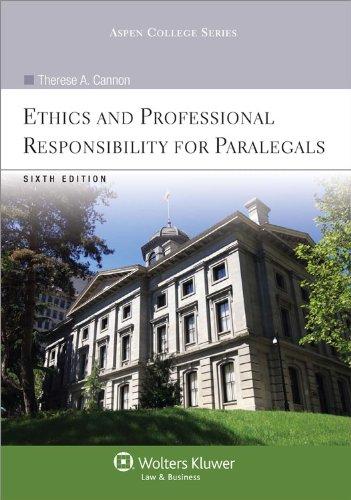In adopting the Unlawful Detainer Assistants Act (Bus. & Prof. Code 6400 et seq.) the Legislature found
Question:
In adopting the Unlawful Detainer Assistants Act (Bus. & Prof.
Code 6400 et seq.) the Legislature found in part that ‘‘there currently exist numerous unscrupulous individuals . . . who purport to offer protection to tenants from eviction. They represent themselves as legitimate tenants’ rights associations, legal consultants, professional legal assistants, paralegals, attorneys or typing services. . . . The acts of these unscrupulous individuals . . . are particularly despicable in that they target low-income and non-English-speaking Californians as victims for their fraudulent practices.’’ [Citation omitted.]
Under names such as ‘‘Legal Aid’’ and ‘‘Legal Aid Services’’ defendant Walter Moore operates a business which purports to offer typing services, particularly in eviction cases. Victims of Moore’s deception Brockey
[and others] were eventually directed to Legal Services of Northern California’s Redding office and obtained representation in the underlying cases and in this action seeking monetary and injunctive relief.
A jury found [that] Moore practiced law in violation of the State Bar Act (Bus. & Prof. Code 6125), violated the Consumer Remedies Act
(Civ. Code 1750, et seq.) and awarded damages of $150 to each of the plaintiffs. . . .
Plaintiffs lived in a mobile home park . . . [T]hey received unlawful detainer summonses they wanted to fight. None had the means to hire a lawyer and they tried to obtain free legal help.
The Judicial Council summons form for unlawful detainer actions states . . . ‘‘if you do not know an attorney, you may call an attorney referral services or a legal aid office. . . .’’ The Judicial Council information sheet on waiver of costs states ‘‘If you have any questions and cannot afford an attorney, you may wish to consult the legal aid office, legal services office, or lawyer referral services in your county. . . .’’
Brockey (who lived with Gayler) looked in his local telephone directory under ‘‘Legal Aid’’ . . . and found a local number which he called. That number was forwarded to Moore’s Modesto business. . . .
[Moore using the name Jay] told Brockey that he had to wire money. . . .
Brockey did not tell [Moore] which boxes to check, that he wanted each party to bear its own fees, or that he wanted to raise an affirmative defense by talking to the judge at the time of trial. Gayler thought that they had contacted a law office ‘‘that offered services to low income people,
[maybe on] a sliding scale of some sort.’’ . . .
Plaintiff Pavloff called ‘‘411’’ information to get the number for free
‘‘Legal Aid Services,’’ which he had used before, and was given Moore’s number by the operator. He was told to wire $85, which he did. He did not tell [Moore] how to fill out the forms. . . .
The plaintiffs had to sign an ‘‘agreement & disclosure’’ form for the
‘‘Legal Aid Services Processing Center’’ in Modesto after paying money but before receiving their answers. The form states that ‘‘[t]his office is a professional document preparation and typing service only,’’ that is not a law office and ‘‘will not provide any legal advice.’’ It suggests that clients contact an attorney. . . .
[Six other persons not participating as plaintiffs had similar experiences in seeking free or low-cost legal services.]
Moore’s former employee . . . testified he was told not to tell callers where the company was, to use aliases, and not to refer callers to the
‘‘real’’ legal aid. . . . When [he] worked there . . . , the company received from 60 to 200 calls a day..........
Questions about the Case 1 If Moore had been registered as an Unlawful Detainer Assistant, would the outcome have been different?
2 Which of Moore’s acts appear to constitute UPL?
3 Why was the court at trial and on appeal concerned about the use of the word ‘‘legal’’ in the name of Moore’s business?
4 Describe the background of the people that were Moore’s ‘‘clients.’’
Did this make a difference in the court’s analysis?
5 Do you find it troubling that the court does not prohibit Moore from calling himself a ‘‘paralegal’’? Remember that other California legislation prohibits the use of the term ‘‘paralegal’’ by anyone who is not working for a lawyer and does not meet the qualifications set forth in the statute.
Step by Step Answer:

Ethics And Professional Responsibility For Paralegals
ISBN: 272860
6th Edition
Authors: Therese A. Cannon





